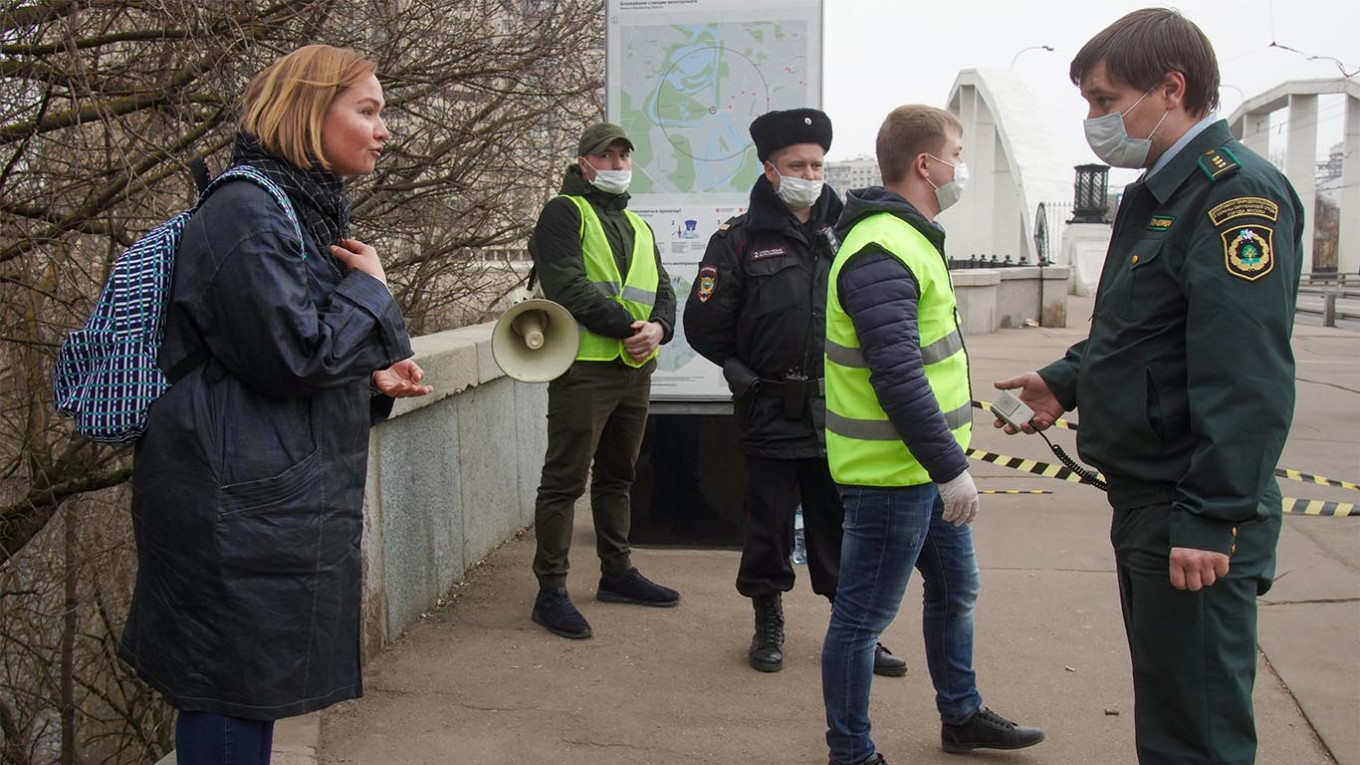
Moscow Mayor Sergei Sobyanin’s announcement of an indefinite citywide quarantine to limit the spread of the coronavirus has prompted debates over whether his strict measures are legal.
Sobyanin imposed restrictions on movement starting Monday and said that authorities will enforce the new self-isolation rules through “smart monitoring” and a system of special passes. The isolation measures in the city of 12.7 million came into force after many Muscovites ignored stay-home recommendations and the city’s number of coronavirus cases surpassed 1,000.
Senator Andrei Klishas, who chairs the upper-house Federation Council’s committee on constitutional legislation and state-building, openly criticized Sobyanin’s partial lockdown as unconstitutional. Several lawyers interviewed by Russian outlets following the mayor’s announcement late Sunday have echoed Klishas’ position.
“Introducing such restrictions is under the exclusive jurisdiction of the Federation Council and the president,” Klishas was quoted as saying Sunday.
His lower-house State Duma colleague Yury Sinelshchikov disagreed, saying Sobyanin’s quarantine amounts to a set of recommendations instead of official orders.
“If [Sunday’s] statement is a recommendation, then Sobyanin is right,” said Sinelshchikov, first deputy head of the State Duma’s constitution and state affairs committee.
The Kremlin said it supported the Moscow mayor’s steps and media reports said Monday that authorities have approved steep fines for violating quarantine. The quarantine coincides with the start of a weeklong paid work holiday that President Vladimir Putin declared last Wednesday.
Observers have also questioned whether Putin acted within the law when introducing his “non-working week.” Others noted that his announcement fell short of declaring a national emergency that would force Russians to remain at home. The Kremlin defended its decision, saying last week “there’s de facto no epidemic” despite an exponential increase in new coronavirus cases.
“It’s probably a form of avoiding introducing a state of emergency, which shifts the decision-making to the regional heads,” journalist Leonid Nikitinsky wrote in the independent Novaya Gazeta newspaper on Friday.
Russia has already enacted a number of restrictions under Russia’s law on emergencies without explicitly declaring one, Novaya Gazeta reporter Irek Murtazin wrote Friday. These include restricting movement, shuttering non-essential companies and banning large public gatherings.
“I think that’s exactly why the president isn’t signing a decree on a national emergency, although all signs point to one,” Murtazin wrote.
Meanwhile, lawmakers are racing to adopt legislation that would grant the Russian government the power to declare a national emergency in an epidemic. The first of three State Duma votes on the bill — which take place before the Federation Council votes on it once and sends it to Putin for signing — is scheduled for Tuesday.
On Monday, Prime Minister Mikhail Mishustin called on the rest of Russia’s subjects to follow Moscow’s example and declare regional quarantines.
An overwhelming majority of Russia’s coronavirus cases have been registered in Moscow, with more than 1,200 out of 1,836 cases and most of the country’s nine deaths registered in the capital.

Leave a Reply